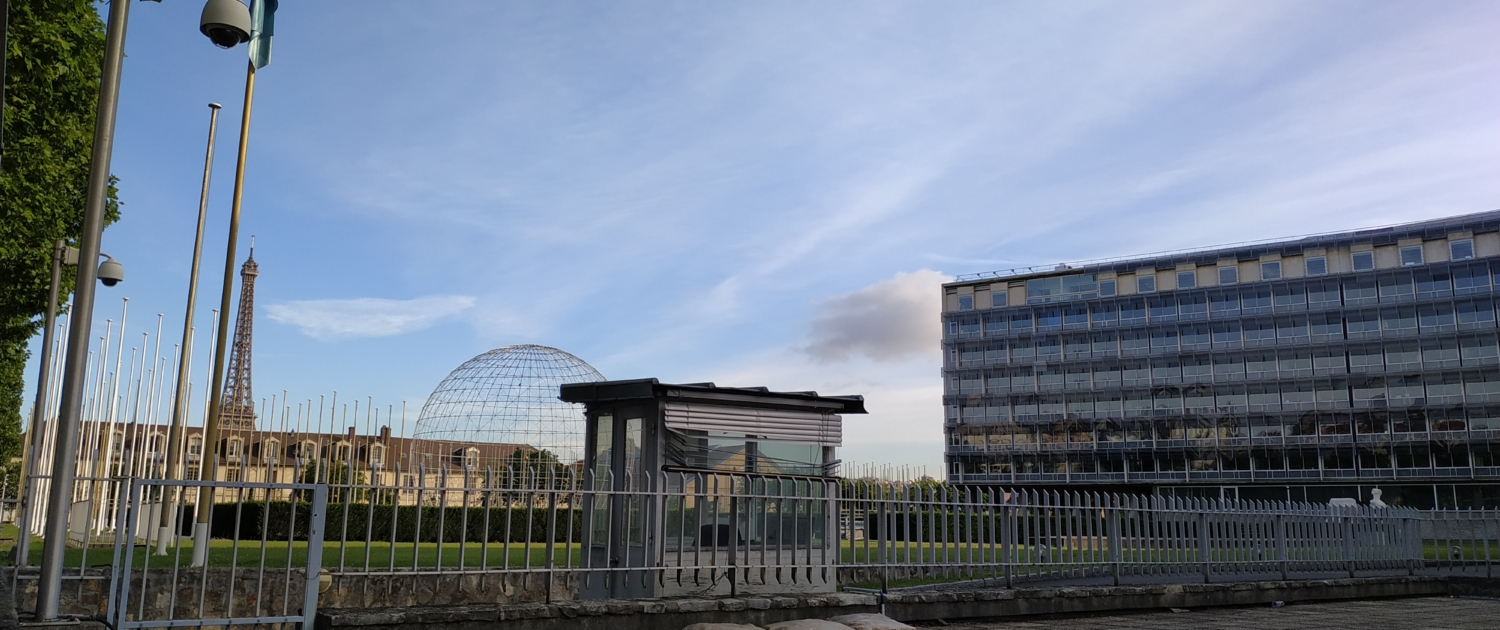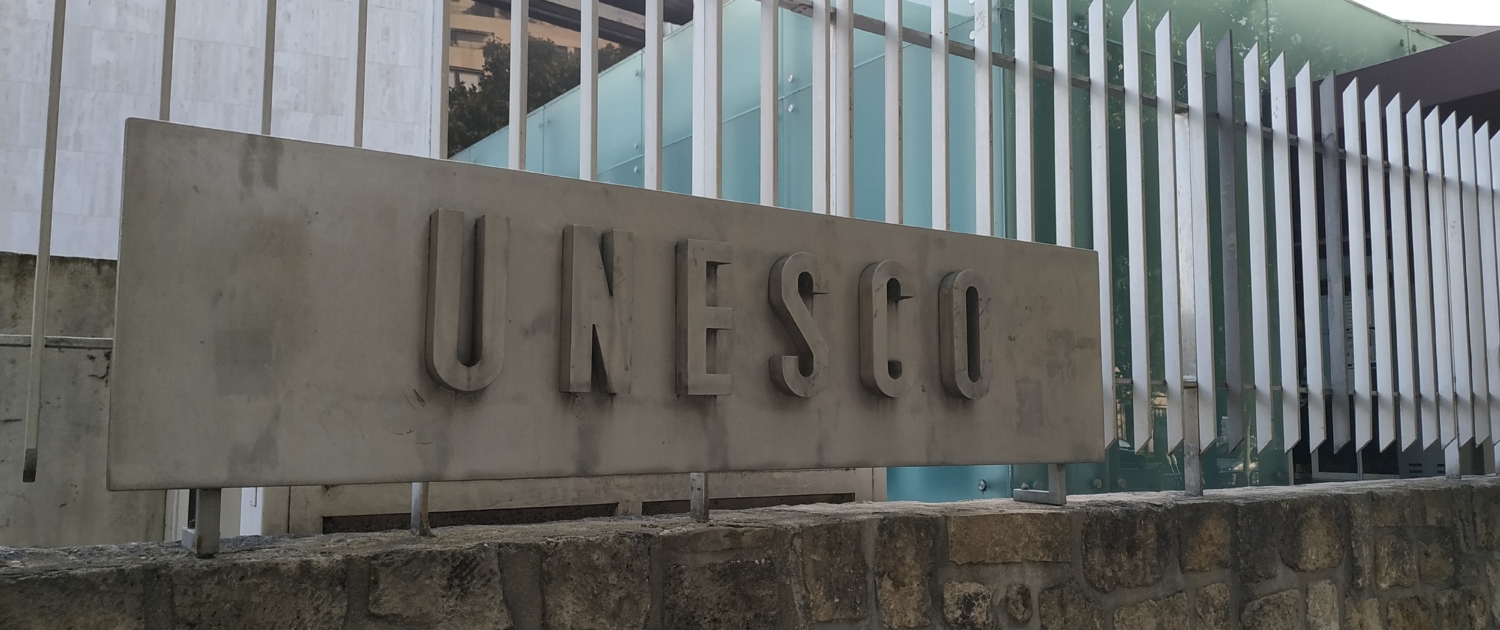L’équipe de Ocean University Initiative était présente à la conférence EurOCEAN 2019 qui s’est déroulée du 11 au 12 au siège de l’UNESCO à Paris.
Les conférences EurOCEAN sont des congrès européens majeurs sur la politique des sciences océaniques en Europe. Ils constituent un forum permettant aux décideurs et aux planificateurs stratégiques, aux niveaux européen et national, d’interagir avec la communauté de la recherche marine et les acteurs du secteur maritime. EurOCEAN 2019 a examiné la contribution européenne à la Décennie des Nations Unies pour les sciences océaniques au service du développement durable des Nations Unies (2021-2030).
Environ 200 personnes ont pris part à ces deux journées qui ont permis de lancer la feuille de route NFV, « Navigating the Future V », co-écrit par les scientifiques membres de l’European marine Board à destination des gouvernements européens.
Ce rendez-vous très suivi a été l’occasion de rappeler à l’auditoire les contours de l’initiative Ocean University. (Re)découvrez le discours de Denis Bailly, coordinateur du projet, prononcé lors de la seconde journée d’échanges.
Ocean University Initiative has been launched by the University of Brest with the support of local authorities and many of our local and national science partners. Brest/Western part of Brittany hosts the largest concentration of marine research in France and France has put a large investment into concentrating research capacities in this area. As we have discussed yesterday and for many years now, there is an urgent need for more policy and science integration if we want to deliver what we call for, if we want to deliver sustainability in the area of ocean and coasts, but not only. We really need to rethink and reorganize science. One of the lines is science and policy; the other one is sustainability science as an integrated, inclusive field of science grounded in transdisciplinary, grounded in good disciplinary science, grounded in close integration/relationship to policy and industry. To build that, we really need to have our governments to invest in new instruments and mechanisms. This has to be designed at all scales, from the local to the global.
We think that the ocean is a major issue for international cooperation within the context of multilateralism. Whatever can be argued about the efficiency of the UN system, it is one of the major instruments we have today to deliver sustainability at the global scale through the international cooperation momentum it sets, particularly for the ocean. We need to get the science, the knowledge we develop, the work we do at the core of the UN system. Having the second largest EEZ and being a big player in ocean science, France has a responsibility in that endeavor. To strengthen science-policy linkage at global scale, the University of Brest is calling on the French government to invest in the creation of an institute of the UN University dedicated to the governance and science for the ocean and the coasts to support the achievement of SDG 14.
What is the UN University?
The UN University may not be known from all of you but it was created almost fifty years ago within the UN system as a UN agency, enjoying full academic independence within the UN system. The UNU is a network of thematic institutes. Surprisingly there has never been a country to offer the creation of an institute dedicated to ocean science. So, what the University of Brest as decided is to propose the creation of such an institute in France, in Brest, to create a mechanism for the global oceanographic community self-organize to voice at the highest level at the UN system in cooperation with other UN bodies. This should engage all sciences. I’m an economist and I come from social science. I voice the for integration of more social science involved in our area, more social science and transdisciplinary research, for more cooperation North, South, East, West, in all areas for all the basins of the global ocean. So what I am asking you today is to help us, to support our initiative, so that France decides to make this investment. Support us to get the decision very soon as a commitment by France to the UN Decade of Oceanographic Sciences.
 L’European Marine Board offre une plate-forme paneuropéenne à ses organisations membres pour développer des priorités communes, faire progresser la recherche marine et combler le fossé entre la science et les politiques afin de relever les défis et de saisir les opportunités futures des sciences marines.
L’European Marine Board offre une plate-forme paneuropéenne à ses organisations membres pour développer des priorités communes, faire progresser la recherche marine et combler le fossé entre la science et les politiques afin de relever les défis et de saisir les opportunités futures des sciences marines.
Le Conseil européen du milieu marin a été créé en 1995 pour faciliter le renforcement de la coopération entre les organisations européennes des sciences de la mer en vue de l’élaboration d’une vision commune des priorités stratégiques de recherche en sciences de la mer.
en Europe. Les membres sont soit d’importants instituts océanographiques ou marins nationaux, des organismes de financement de la recherche ou des consortiums nationaux d’universités qui mettent l’accent sur la recherche marine. En 2019, l’European Marine Board représente 33 États membres d’organisations de 18 pays.
Le Conseil d’administration fournit les éléments essentiels pour le transfert des connaissances en vue d’un leadership dans le domaine de la recherche marine en Europe.
Adoptant un rôle stratégique, l’European Marine Board sert ses organisations membres en offrant une tribune au sein de laquelle des conseils en matière de politique de recherche marine à l’intention des agences nationales et de la Commission européenne sont élaborés, dans le but de promouvoir la mise en place d’un champ de recherche européen.
See this page in: English










 IFREMER
IFREMER